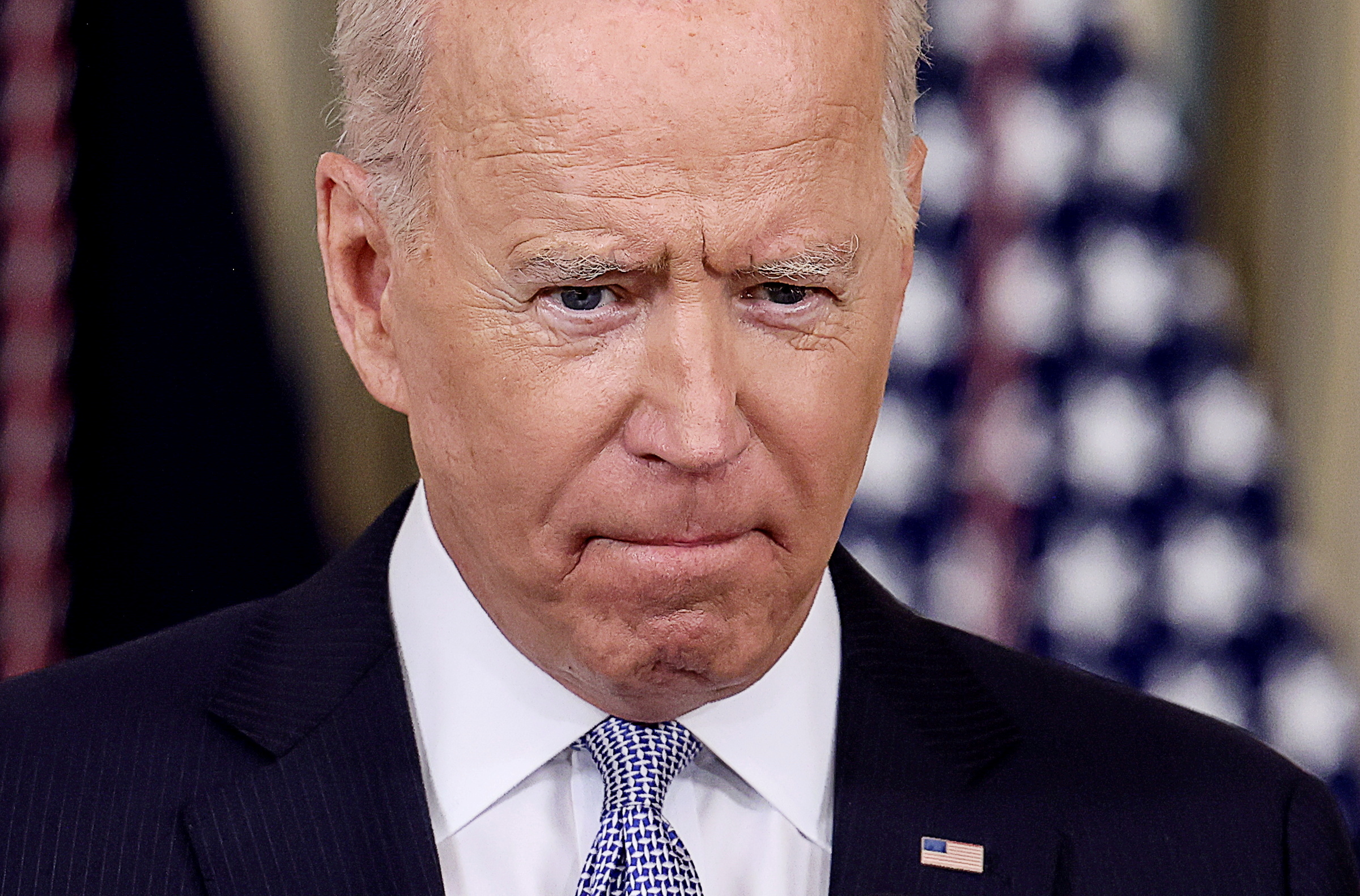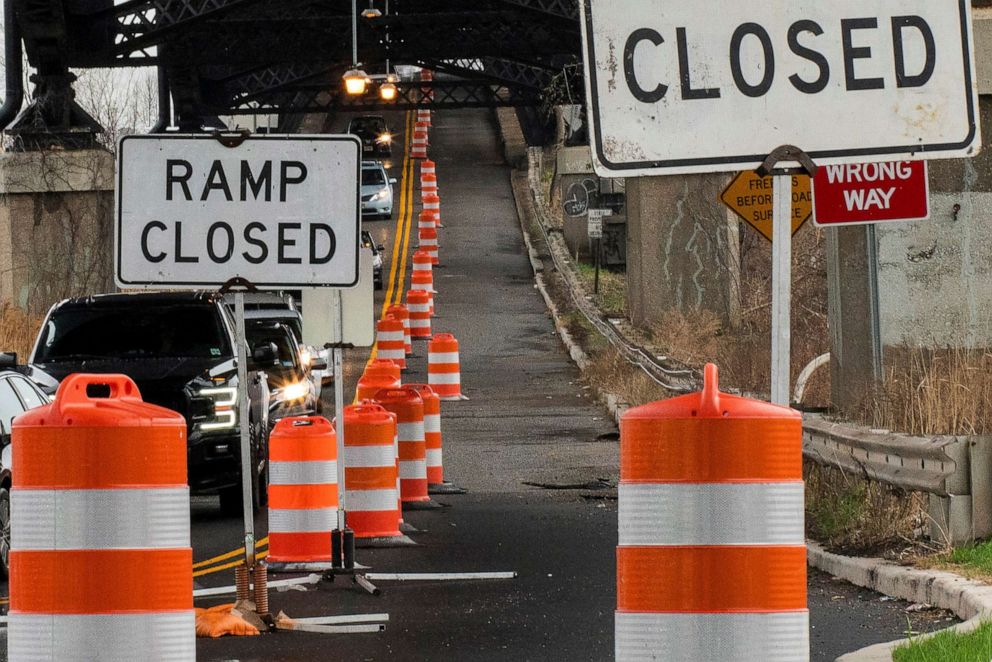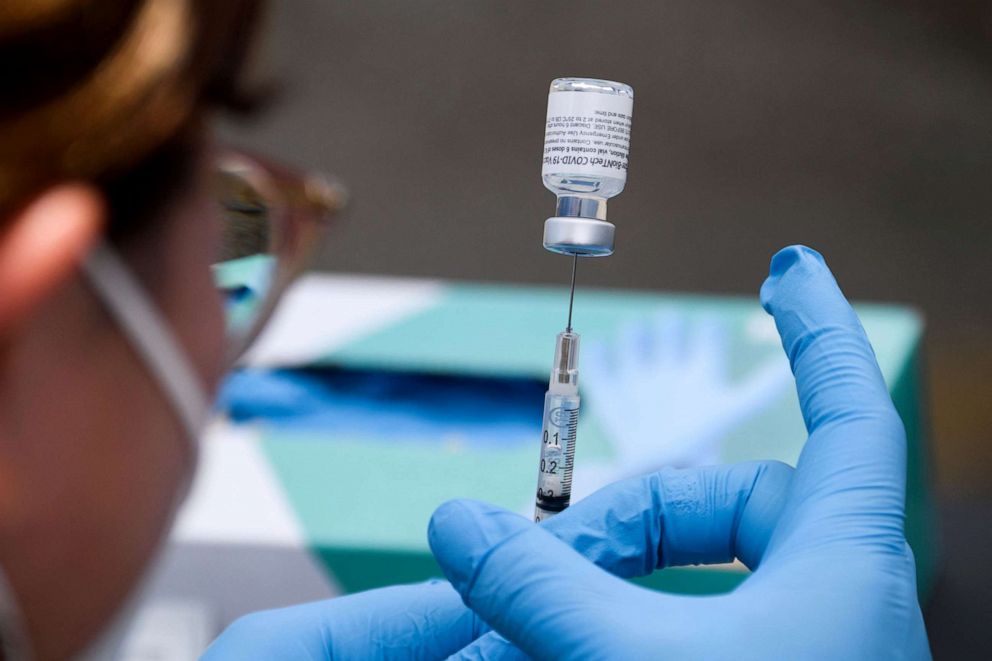At critical moment, confidence in Biden's ability to handle range of issues eroding: POLL
Dissatisfaction among Republicans and independents is fueling the decline.
As President Joe Biden faces a critical moment for his agenda, Americans' confidence in his handling of a range of issues is eroding, a new ABC News/Ipsos poll finds.
Compared to an August ABC News/Ipsos poll, public approval of how Biden is handling key issues -- the pandemic, immigration and the situation at the U.S.-Mexico border, gun violence and even rebuilding the nation's infrastructure, the issue he's pushing this week -- is on the decline. Dissatisfaction among Republicans and independents is fueling the decline, but the president's ratings are also hampered by more lackluster approval among members of his own party than presidents typically enjoy.
The poll, which was conducted Sept. 24-28 using Ipsos' KnowledgePanel, comes roughly a month after the most difficult stretch of his presidency thus far -- the U.S. troop withdrawal from Afghanistan. Thirteen U.S. service members were killed in a terrorist attack at Kabul's Hamid Karzai International Airport during that drawdown, and for the first time since taking office, FiveThirtyEight's tracker averaging presidential approval polls showed more Americans disapproved than approved of the job Biden was doing as president.

His overall approval rating now, measured by FiveThirtyEight's average at 49% disapprove and 45% approve, has worsened since late August, and that sentiment is reflected in the issue-specific approvals measured in this most recent ABC News/Ipsos poll.
Biden's performance on the coronavirus remains his strongest issue, with nearly six in 10 (57%) Americans still approving of how he is handling it. Still, compared to the ABC News/Ipsos poll in the field Aug. 27-28, Biden's approval on this issue is down seven points overall and among independents, and down 14 points among Republicans. It's also down 15 points from his late March record high on COVID-19 job performance in ABC News/Ipsos polling.
Although some Americans are now eligible for a third shot of the vaccine, following the Centers for Disease Control and Prevention recommendation of boosters for certain populations, vaccinating the unvaccinated remains a central challenge for Biden as his administration works to end the pandemic.
Children under 12 are not currently eligible for vaccines, but that's likely to change soon. After submitting data on vaccine trials for 5- to 11-year-olds on Tuesday, Pfizer expects to formally request emergency use authorization from the FDA to vaccinate this population.
But this poll, which was weighted to reflect the CDC's adult vaccination rate, highlights how persuading vaccine-hesitant parents to have their children inoculated will be an additional obstacle for the Biden administration.

A majority (56%) of parents with children under 12 say they are likely to have their child get the coronavirus vaccine when it is available for them. Still, over four in 10 (43%) say they are not likely to.
Even among parents who are vaccinated with at least one shot, approximately two in 10 (21%) say they are not likely to get their child vaccinated when they are eligible. Nearly all (89%) unvaccinated parents say they are not likely to have their child get the coronavirus vaccine when eligible.
About half of parents who have at most a high school degree or who attended some college, 49% and 48% respectively, say they are likely to get their child vaccinated when it's available to their age group. Among parents with a bachelor's degree or higher, seven in 10 say they are likely to have their child get the vaccine when possible.
Parents who are Democrats are most likely to be vaccinated with at least one dose themselves (86%) compared to parents who are independents (65%) and parents who are Republicans (55%). For parents who are Democrats and independents, 78% and 61% respectively say they are likely to get their child vaccinated once eligible. However, though a majority of parents who are Republicans are vaccinated, fewer than four in 10 (38%) say they will have their child get the vaccine when it's available to their age group.
The economic recovery from the pandemic also continues to be a challenge for the president. About equal shares of the public approve and disapprove of his handling of the economic recovery, 51% to 48%. The percentage of Americans disapproving of Biden on the economy increased seven points since late August.

Besides the pandemic, enacting a bill to rebuild the nation's infrastructure is the most pressing priority for Biden this week, as it will be brought up for a vote on the House floor Thursday. By an 11-point margin, Americans approve of Biden's handling of this issue, 55% to 44%, but disapproval has increased by nine points since late August. Among Republicans and independents, approval dropped 10 and nine points, respectively.
Black and Hispanic Americans overwhelmingly support the president's handling of the United States' infrastructure, with 71% and 70% respectively approving, while a majority of white Americans (54%) disapprove.
In politics today, partisans usually are more unified in their support of or opposition to particular issues or people, but that is not the case for Biden on multiple issues. The vast majority of Democrats back the president on his handling of COVID-19 (91%), rebuilding U.S. infrastructure (87%) and the economic recovery (84%), but support among members of his party drops for his handling of Afghanistan (69%), gun violence (65%) and the immigration situation at the southern border (60%).
Without overwhelming support from his party, Biden's approval among U.S. adults overall falls below 40% on all three of those issues -- 38% on gun violence, 38% on Afghanistan and 33% on immigration and the situation at the border.
The humanitarian crisis at the southern border was thrust into the spotlight over the last two weeks after a surge of migrants, mostly from Haiti, were sheltering under a bridge in Del Rio, Texas, hoping to claim asylum and remain in the United States. That migrant camp was cleared as of Friday, but more than 17,400 remained in the U.S., according to Homeland Security Secretary Alejandro Mayorkas.

While the secretary said Friday that about 12,400 of those migrants will have an opportunity to have their asylum cases heard before an immigration judge and about 5,000 were still being processed, thousands did not have that chance before being flown directly back to Haiti or returning on their own to Mexico. The administration has employed a controversial policy using a public health rationale to immediately expel unauthorized migrants at the border.
Most Americans (58%) believe the United States should allow migrants seeking asylum at the border to stay until their cases are heard while four in 10 believe they should be deported back to their native countries immediately, the ABC News/Ipsos poll found.
By party, a majority of Democrats (83%) and independents (57%) believe migrants seeking asylum should be allowed to remain in the United States while their cases are heard, but about seven in 10 (72%) Republicans believe they should be deported immediately.
Across racial groups, most Americans think these migrants should be allowed to stay until their asylum cases are heard, but white Americans (52%) are less likely to feel this way than Hispanic (66%) and Black (78%) Americans.
METHODOLOGY – This ABC News/Ipsos poll was conducted by Ipsos Public Affairs‘ KnowledgePanel® September 24-28, 2021, in English and Spanish, among a random national sample of 1,101 adults, including an oversample of 537 parents with children under the age of 12. The overall results have a margin of sampling error of 3.7 points, including the design effect. Results among parents have a margin of sampling error of 4.7 points, including the design effect. Partisan divisions are 31-24-36 percent, Democrats-Republicans-independents. See the poll’s topline results and details on the methodology here.
ABC News' Ken Goldstein and Dan Merkle contributed to this report.




